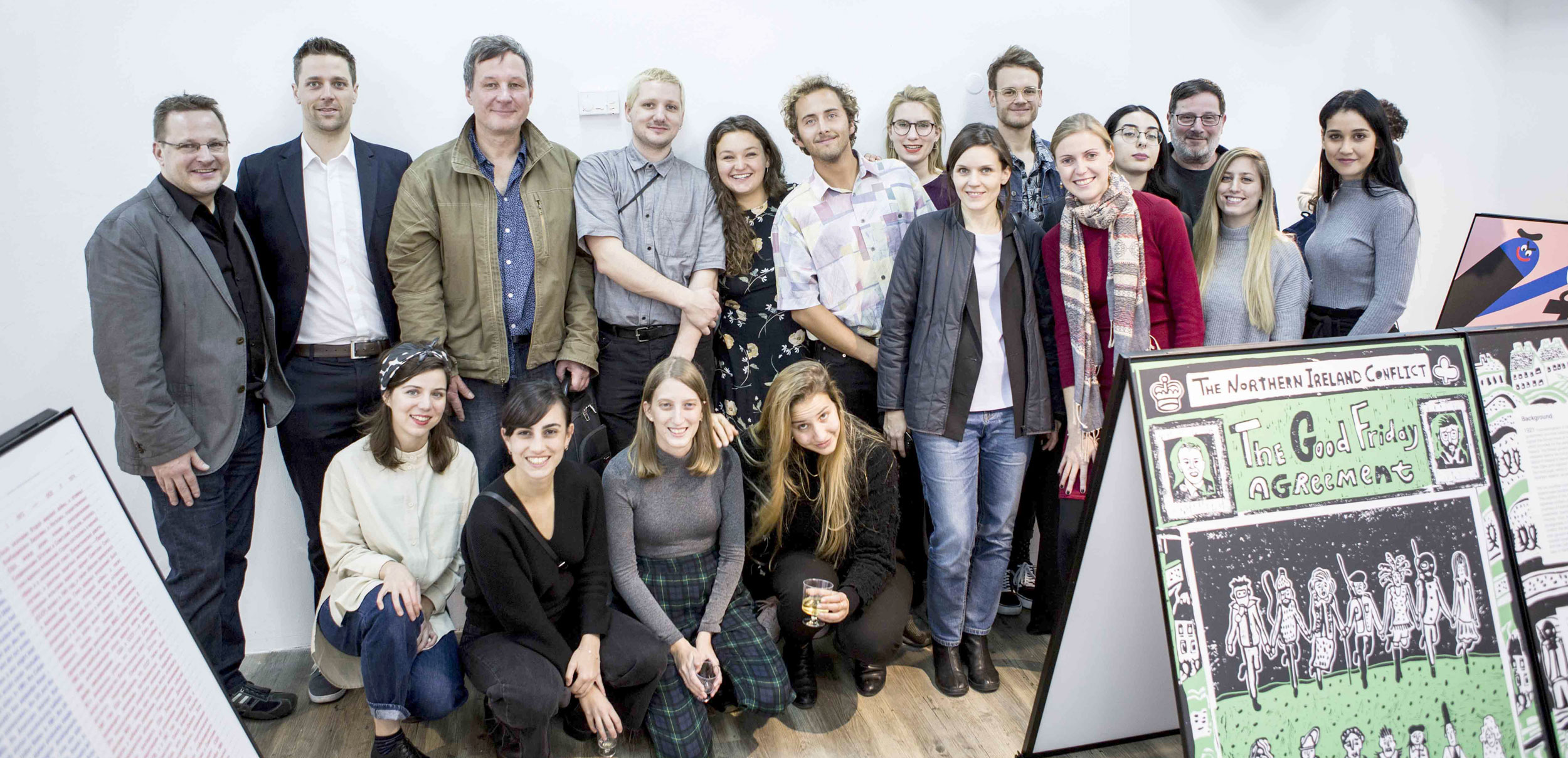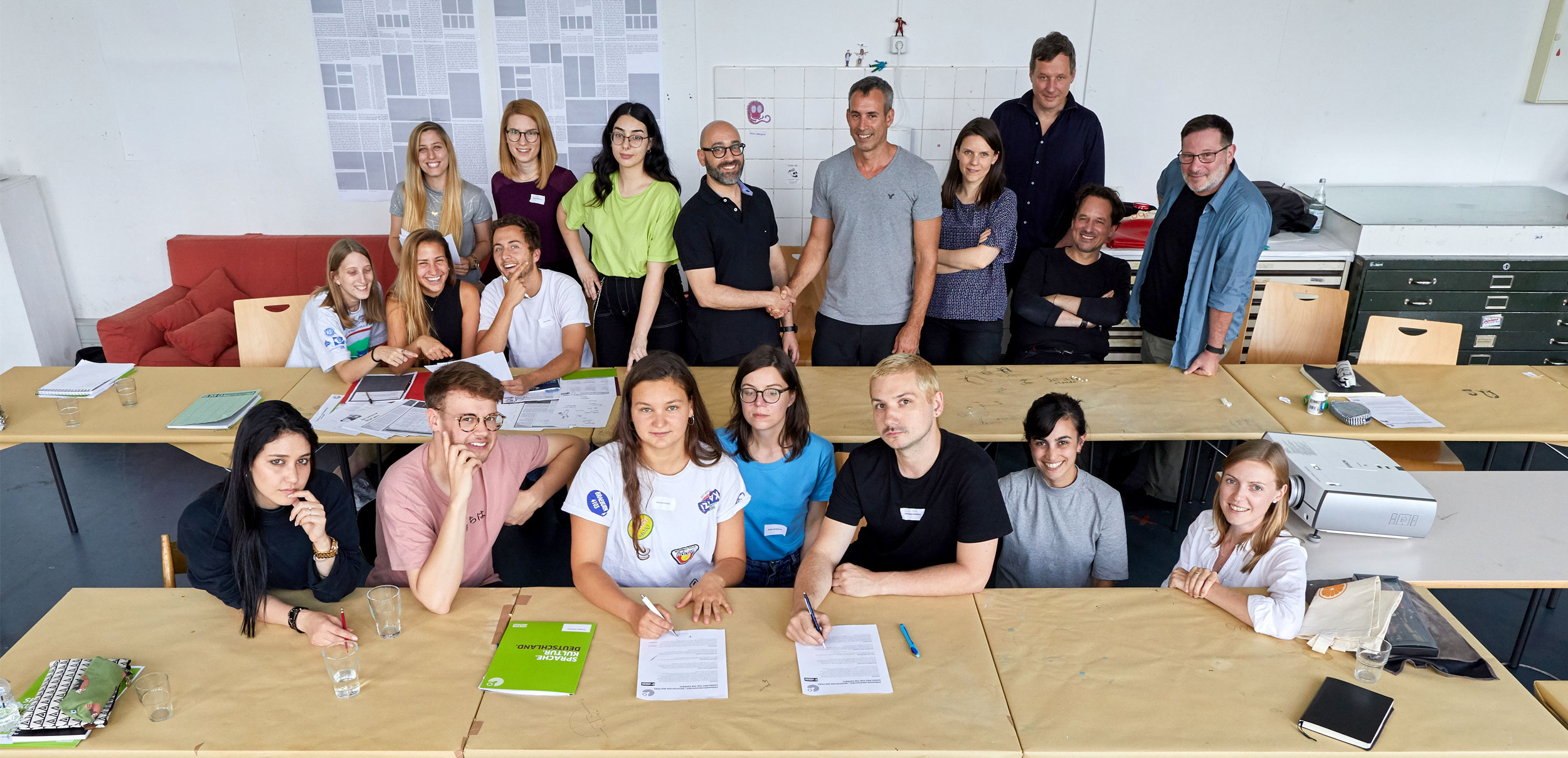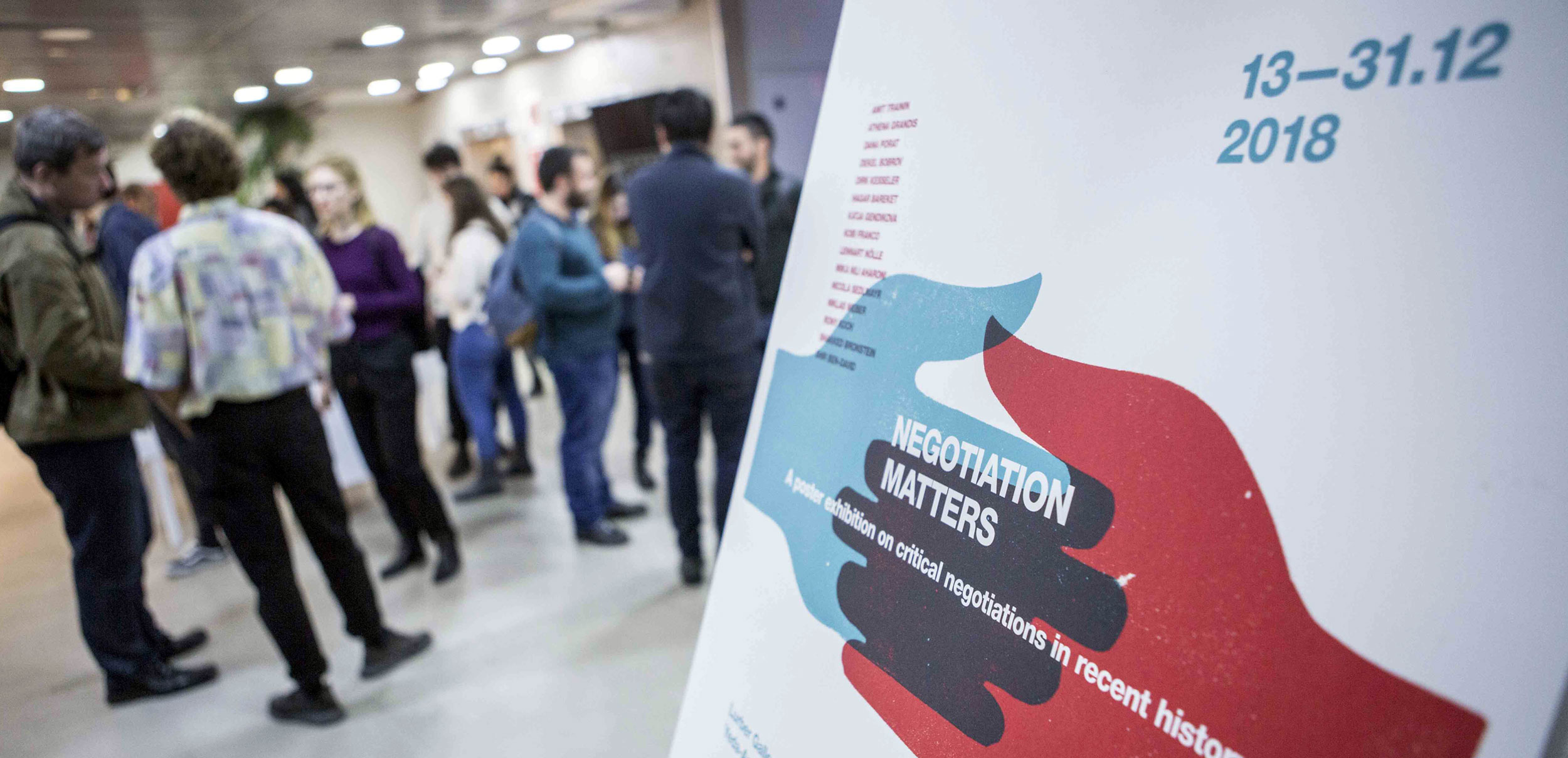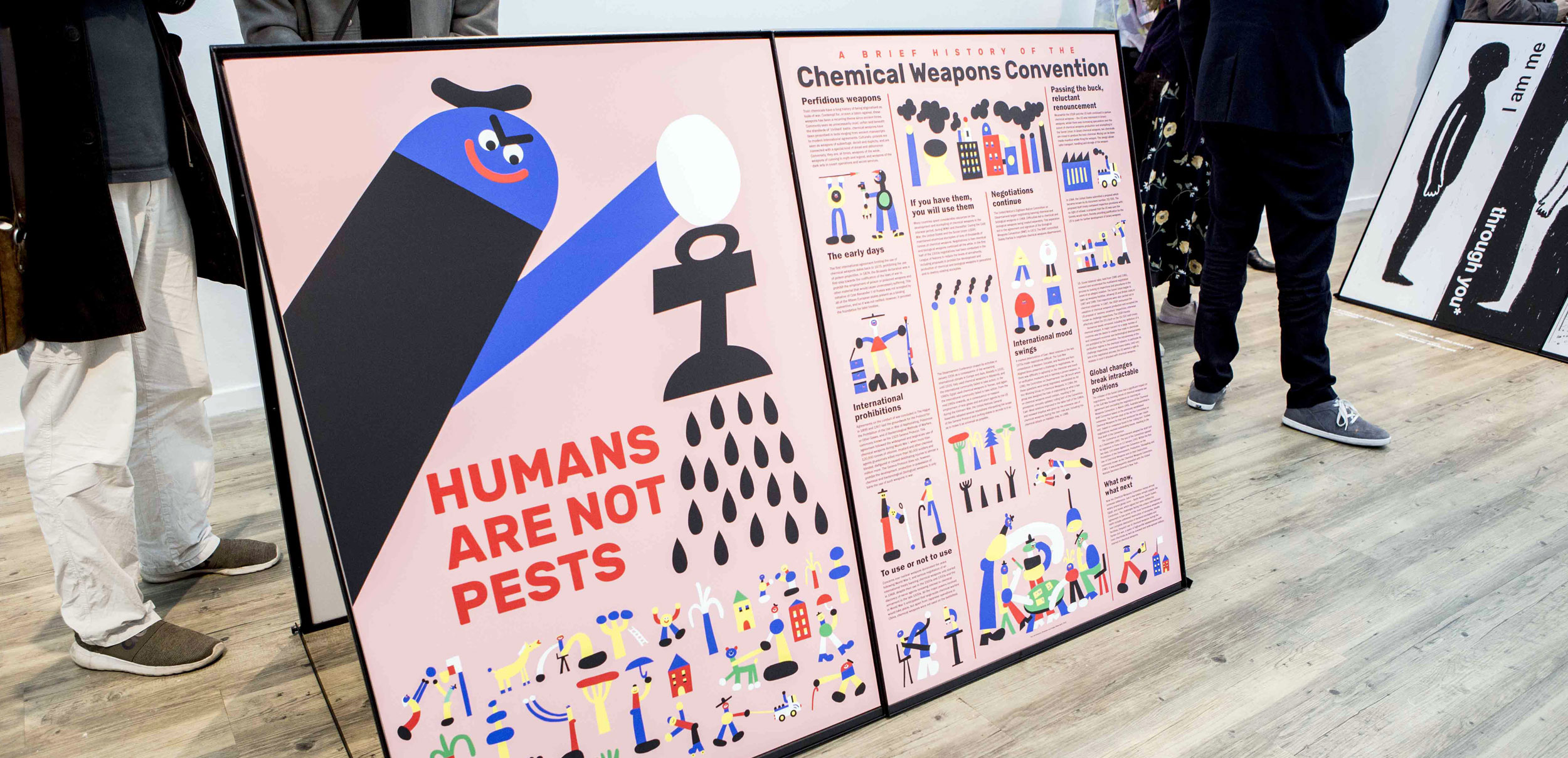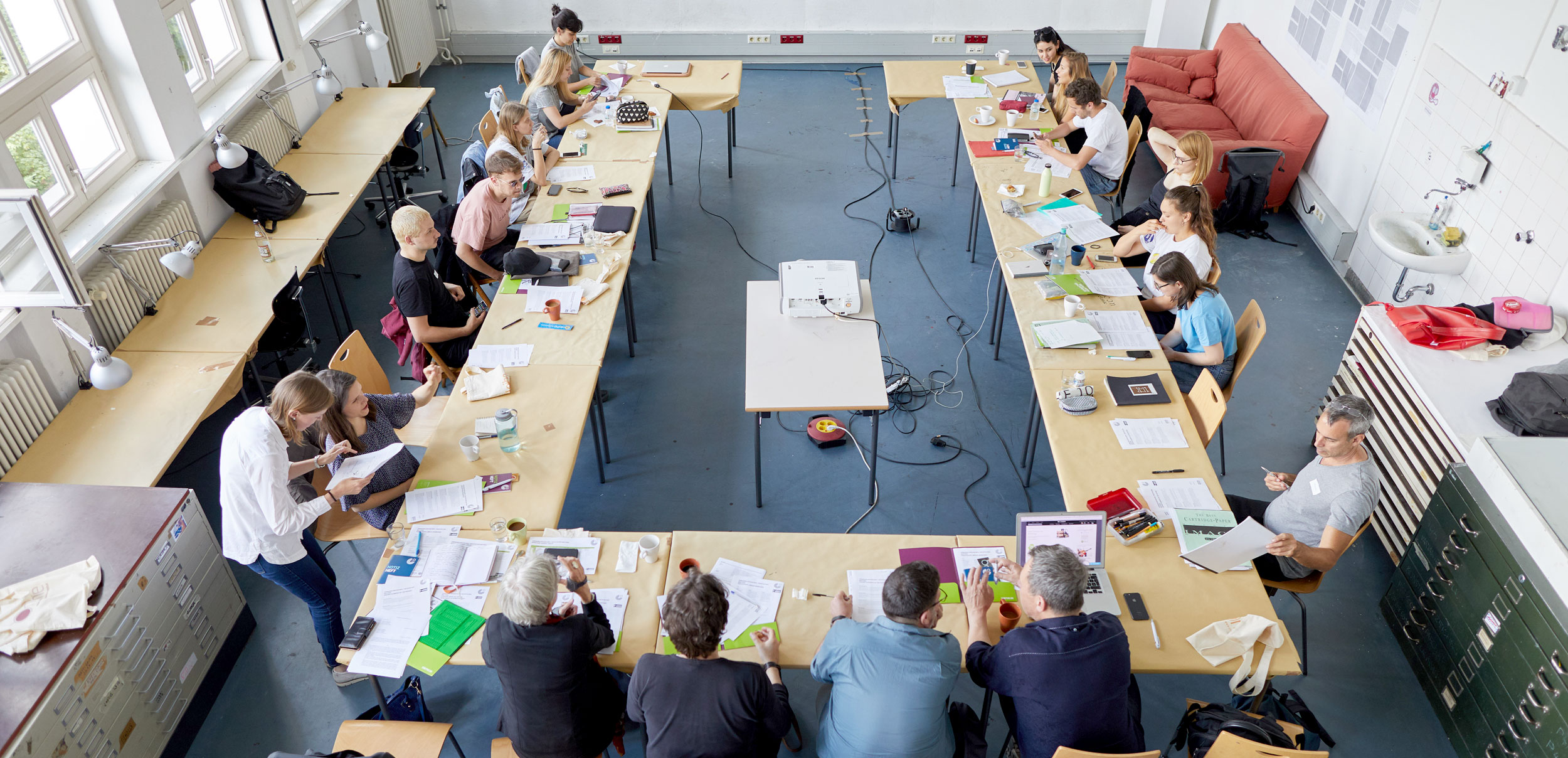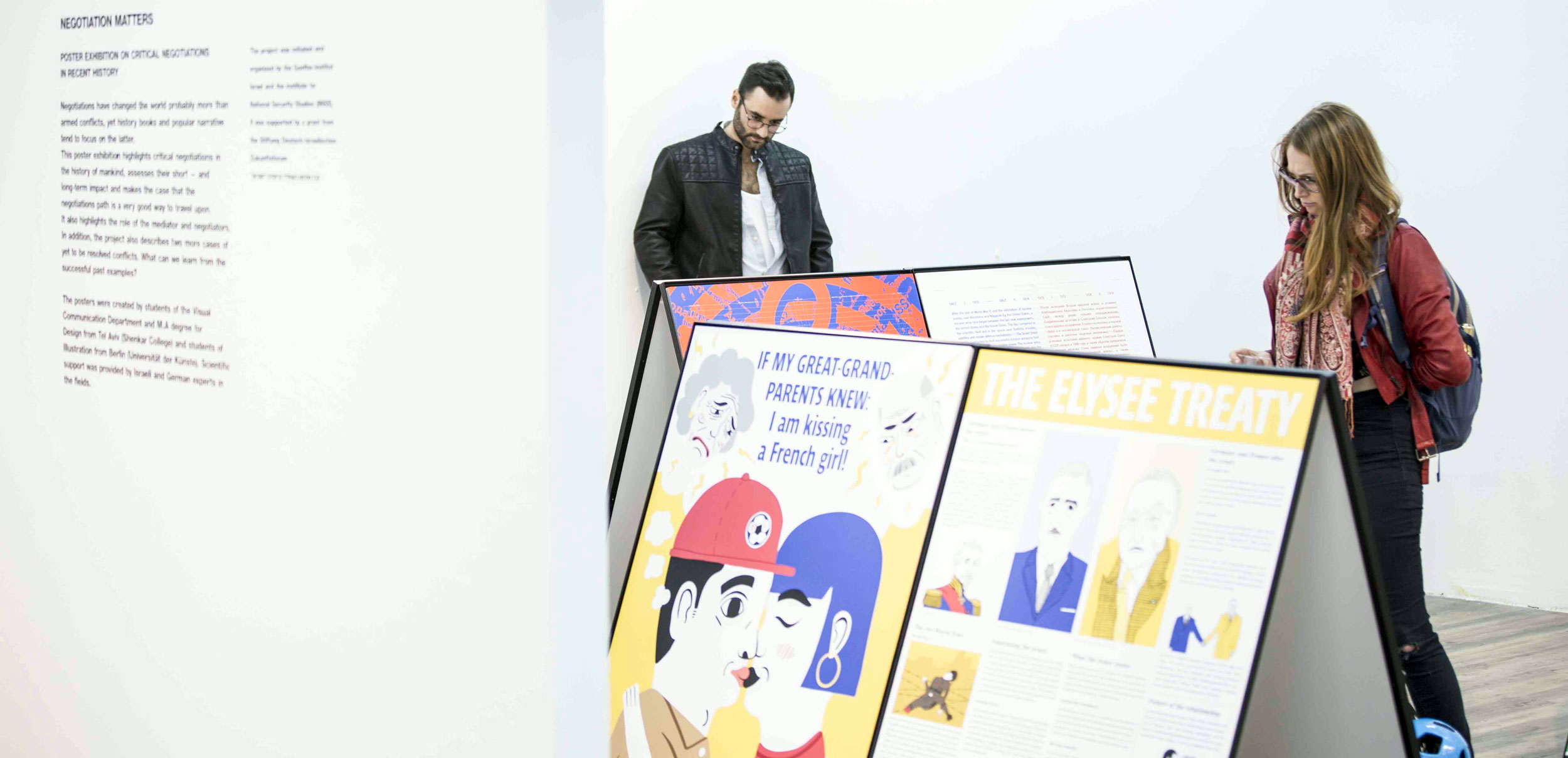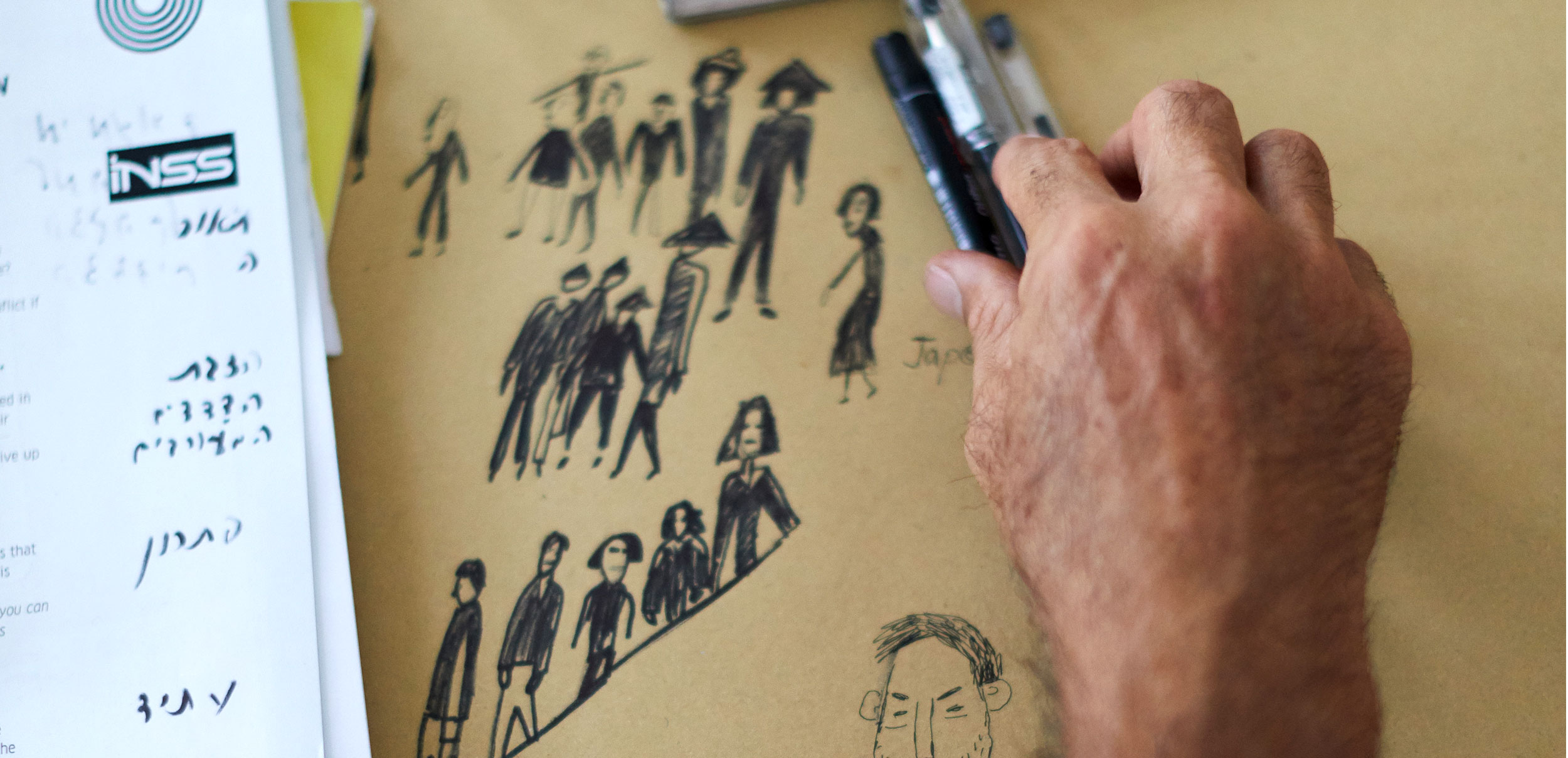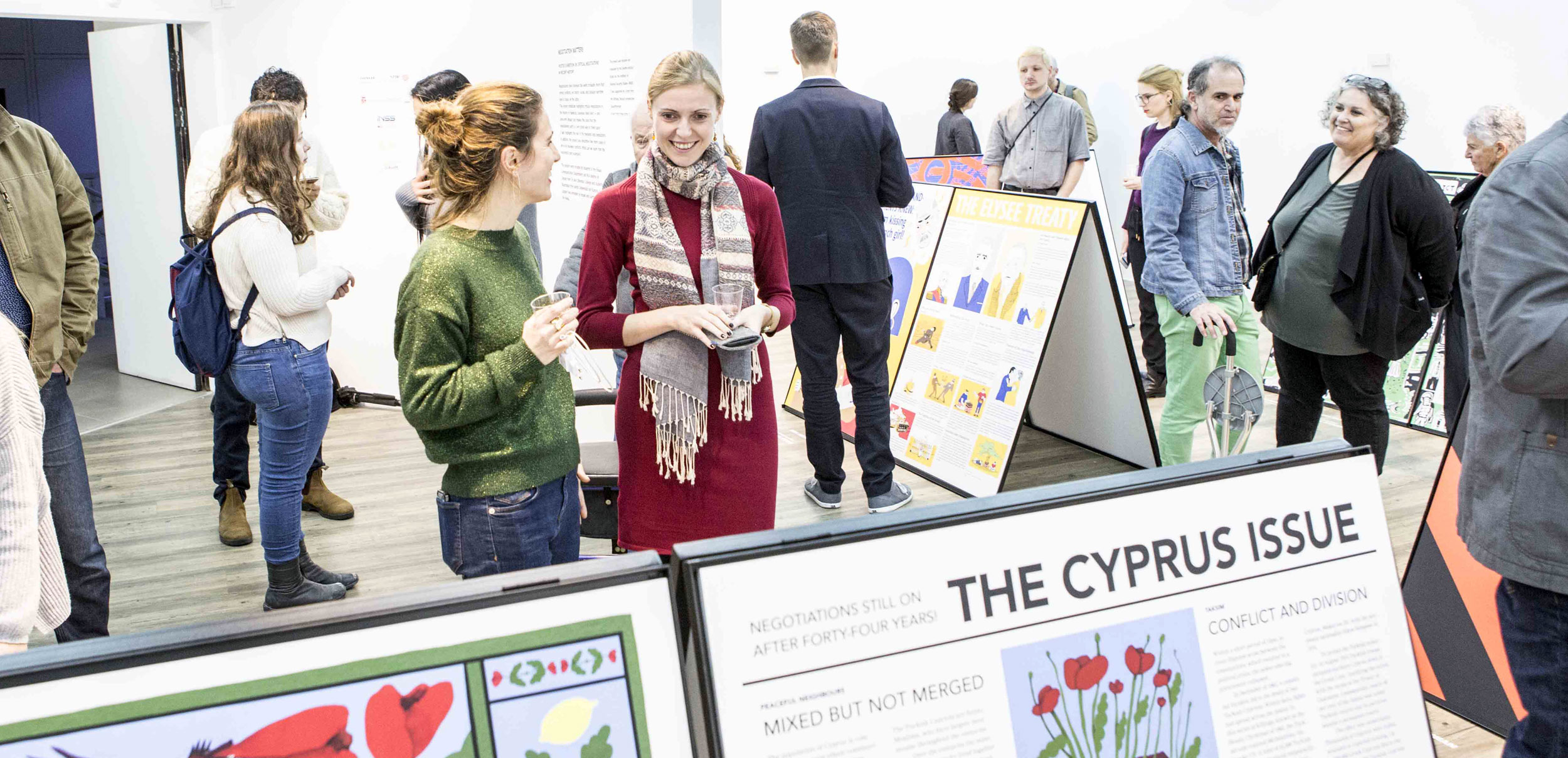Negotiation matters. A Poster Exhibition
Wars and conflicts have left a profound impression in the consciousness of society– they are perceived as having shaped human history. But what about the negotiations and treaties that were able to resolve such conflicts? These play a less significant role in how many people see history, although there are numerous examples of how the course for new developments could be set by such negotiations. This collaboration between artists and academics is about generating greater public attention for the path of negotiation.
Participants
6 students at the UdK and Shenkar schools of art
Young historians
Project Content
How and where in modern history can successful examples of conflict resolution and negotiated compromises be found? This is the question that artists and historians will be exploring within this project, carried out by the Goethe Institut Israel in collaboration with the Universität der Künste (UdK) in Berlin, the Shenkar College for Engineering, Design and Art in Ramat Gan, and the Institute für National Security Studies. Assisted by the academics, the artists study historical developments that resulted in negotiations and conflict resolution and design corresponding posters which enable visual engagement with the subject. 10 treaties that were able to resolve conflicts are to be examined:
• The Reparations Agreement between Israel and West Germany (Israel and Germany, 1952)
• London Agreement on German External Debts (Germany and other countries, 1953)
• The Strategic Arms Limitation Talks, SALT I (USA and Soviet Union, 1969-72)
• The Paris Peace Accords (US, South Vietnam and North Vietnam, 1973)
• The Camp David Accords (Israel and Egypt, 1978)
• The Chemical Weapons Convention (United Nations, 1993)
• National Peace Accord (South Africa, 1992)
• The Dayton Agreement (Serbia, Croatia, Bosnia and Herzegovina, 1995)
• The Good Friday Agreement (United Kingdom, Ireland and different parties in Northern Ireland, 1998)
• The Paris Climate Accord (international community, 2015)
Two unresolved conflicts will also be dealt with – the Israeli-Palestinian conflict and the Cyprus conflict.
Project Working Methods
The project begins with a joint workshop attended by the project participants in Berlin where each artist presents “their” conflict. The participants then develop an exhibition concept, with each treaty being depicted on two posters. The resultant graphics list the facts that made the negotiation possible (poster 1) and show an artistic representation of the process of negotiation and its results (poster 2). The academics are on hand here as experts on the respective conflicts to support the artists in their research.
Project Goals
The project aims to generate publicity for a perspective on conflicts that has received too little attention: their successful resolution via negotiations. The project is brought to a close with an exhibition and a meeting between all project participants in Tel Aviv –but that doesn’t mean that it’s over. As part of a travelling exhibition, the posters, which are to be produced in German and Hebrew versions, will be shown to young audiences in German and Israeli schools, universities, and cultural institutions
Participants
6 students at the UdK and Shenkar schools of art
Young historians
Project Content
How and where in modern history can successful examples of conflict resolution and negotiated compromises be found? This is the question that artists and historians will be exploring within this project, carried out by the Goethe Institut Israel in collaboration with the Universität der Künste (UdK) in Berlin, the Shenkar College for Engineering, Design and Art in Ramat Gan, and the Institute für National Security Studies. Assisted by the academics, the artists study historical developments that resulted in negotiations and conflict resolution and design corresponding posters which enable visual engagement with the subject. 10 treaties that were able to resolve conflicts are to be examined:
• The Reparations Agreement between Israel and West Germany (Israel and Germany, 1952)
• London Agreement on German External Debts (Germany and other countries, 1953)
• The Strategic Arms Limitation Talks, SALT I (USA and Soviet Union, 1969-72)
• The Paris Peace Accords (US, South Vietnam and North Vietnam, 1973)
• The Camp David Accords (Israel and Egypt, 1978)
• The Chemical Weapons Convention (United Nations, 1993)
• National Peace Accord (South Africa, 1992)
• The Dayton Agreement (Serbia, Croatia, Bosnia and Herzegovina, 1995)
• The Good Friday Agreement (United Kingdom, Ireland and different parties in Northern Ireland, 1998)
• The Paris Climate Accord (international community, 2015)
Two unresolved conflicts will also be dealt with – the Israeli-Palestinian conflict and the Cyprus conflict.
Project Working Methods
The project begins with a joint workshop attended by the project participants in Berlin where each artist presents “their” conflict. The participants then develop an exhibition concept, with each treaty being depicted on two posters. The resultant graphics list the facts that made the negotiation possible (poster 1) and show an artistic representation of the process of negotiation and its results (poster 2). The academics are on hand here as experts on the respective conflicts to support the artists in their research.
Project Goals
The project aims to generate publicity for a perspective on conflicts that has received too little attention: their successful resolution via negotiations. The project is brought to a close with an exhibition and a meeting between all project participants in Tel Aviv –but that doesn’t mean that it’s over. As part of a travelling exhibition, the posters, which are to be produced in German and Hebrew versions, will be shown to young audiences in German and Israeli schools, universities, and cultural institutions
Cooperating Partners
Goethe Institut Israel
INSS - Institute for National Security Studies
Goethe Institut Israel
INSS - Institute for National Security Studies






